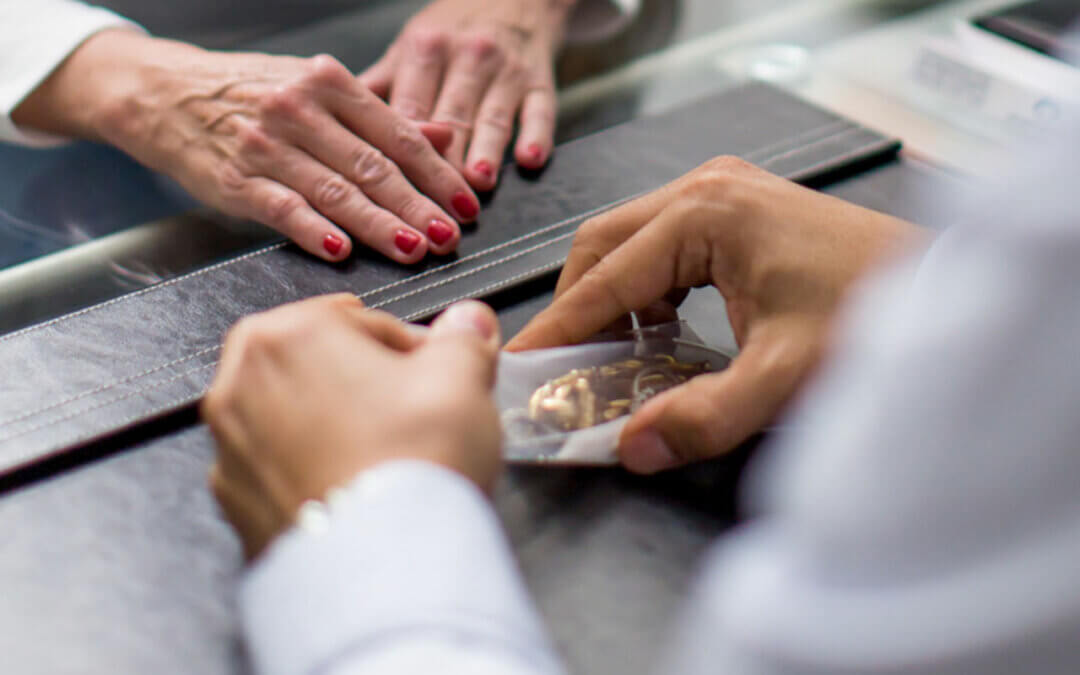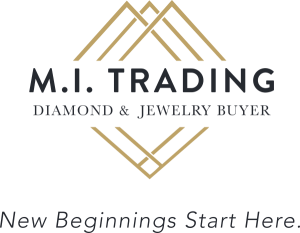Selling jewelry for cash can be a great way to get rid of unwanted or unused pieces, and it can be a great way to make some extra money. However, there are a few things you should keep in mind when selling jewelry for cash.
You’ve probably heard that you can sell your old jewelry for cash, but what are the best ways to do it?
There are a lot of misconceptions about selling jewelry. Some people think you have to go to a pawnshop, some people think you have to take low offers, and some people think you have to be in a bad financial situation to sell jewelry.
M.I. Trading is here to debunk those myths and help you get the most money for your old jewelry. We’ll teach you the 10 commandments of selling jewelry for cash so that you can feel confident and informed when it’s time to sell.
Here are the 10 commandments of selling jewelry for cash that works:
1. Thou shalt do thy research
Before selling any piece of jewelry, it is important to do your research and understand what it is worth. There are many factors that can affect the value of jewelry, such as its metal content, stone quality, and condition. Be sure to consult with a local jewelry buyer or gemologist to get an accurate estimate of your jewelry’s value before selling.
2. Thou shalt clean thy jewelry
One of the quickest ways to devalue jewelry is by selling it dirty or covered in residue. Be sure to clean your jewelry thoroughly before selling, using a gentle jewelry cleaner and a soft cloth. This will help ensure that you get the best price for your jewelry when selling.
3. Thou shalt ensure your jewelry is not broken
If your jewelry is not broken, you will likely get a better price for it. When selling jewelry, make sure to take care of it and get it evaluated before you try to sell it. Yes, you can still sell damaged jewelry for cash, but it will likely be worth less than undamaged jewelry. If your jewelry is severely damaged, it may only be suitable for scrap value.
4. Thou shalt describe thy jewelry accurately
When selling jewelry, it is important to be as accurate as possible in your descriptions. Include all pertinent details such as metal content, stone quality, and condition. Be sure to mention any damage or repair that has been done to the piece, as this can affect its value.
At M.I. Trading, we recommend bringing all documents that will help us assess the worth of your jewelry. Appraisals, diamond certificates, and receipts can all be helpful in determining the value of your jewelry.
5. Thou shalt be patient
When selling jewelry, it is important to be patient and not try to rush the process. Depending on the method you use to sell your jewelry, it could take some time to find a buyer. Be prepared to wait a while before you receive any offers, and don’t be discouraged if you don’t receive any right away.
6. Thou shalt use a reputable buyer
When selling jewelry, it is important to work with a reputable buyer who will give you a fair price for your item. At M.I. Trading, we have over 25 years of experience buying and selling jewelry. We are committed to giving our customers the best possible prices for their jewelry.
7. Thou shalt get a minimum of 3 offers before selling.
No matter what you’re selling, it’s always important to get multiple offers before agreeing to a sale. This is especially true when it comes to jewelry, as the prices can vary drastically from one buyer to the next. By getting three or more offers, you’re guaranteed to get the best price for your item.
8. Thou shalt be cautious of scams
When selling jewelry, it is important to be aware of scams and take precautions to avoid them. There are many scam artists out there who will try to take advantage of people who are selling jewelry. Be sure to do your research and only work with reputable buyers and sellers.
9. Thou shalt ensure thy jewelry when shipping
If you are selling your jewelry online or through the mail, it is important to insure it against loss or damage during shipping. Be sure to get insurance coverage that is appropriate for the value of your jewelry so you can be reimbursed if anything happens to it while in transit.
10. Thou shalt consult with a professional if needed
If you are unsure about anything when selling your jewelry, it is always a good idea to consult with a professional. A reputable jewelry buyer can help you determine the value of your jewelry and give you advice on the best way to sell it.
By following these 10 commandments, you can help ensure that you have a successful experience when selling jewelry for cash. Just remember to do your research, be patient, and be flexible with your prices in order to get the best results.
FAQs About Selling Jewelry For Cash That Works
What is the best way to sell jewelry for cash?
There is no single “best” way to sell jewelry for cash. The method you use will depend on factors such as the type of jewelry you are selling, its value, and your personal preferences. Some common methods for selling jewelry include online auction sites, consignment shops, pawn shops, and private buyers.
At M.I. Trading, we ensure the process is simple and efficient for our customers. We will evaluate your jewelry and make you a cash offer on the spot. If you accept our offer, we will pay you immediately and there is no need to ship your jewelry anywhere.
What are the risks of selling jewelry online for cash?
There are a few risks to consider when selling jewelry online for cash. First, there is the risk that your jewelry could be lost or damaged in shipping. Have your jewelry insured against loss or damage when shipping it to a buyer.
Another risk to consider is the possibility of scams. There are many scam artists who operate online, so it is important to be aware of them and take precautions to avoid them. Be sure to do your research and only work with reputable buyers and sellers.
Finally, you will need to be flexible with your prices when selling jewelry online. Because there is so much competition, you may need to sell your jewelry for less than you would like in order to attract buyers.
How do I know if my jewelry is worth anything?
The value of jewelry can vary greatly depending on factors such as its age, condition, metal content, and stone quality. If you are unsure about how much your jewelry is worth, you can consult with a professional jewelry buyer.
What are some common scams to be aware of when selling jewelry?
There are a number of scams that are commonly used against people who are selling jewelry. Some common scams include fake buyers who try to lowball you, sellers who try to switch out your jewelry for fakes, and online scams where you are asked to pay upfront fees without receiving anything in return.
How do I insure my jewelry when shipping it?
If you are shipping your jewelry, you will need to insure it against loss or damage. Be sure to get insurance coverage that is appropriate for the value of your jewelry so you can be reimbursed if anything happens to it while in transit.
How do I clean my jewelry before selling it?
If your jewelry is dirty or tarnished, you will want to clean it before selling it. You can use a simple at-home solution of dish soap and water to clean most types of jewelry. Be sure to rinse the jewelry well and dry it completely before attempting to sell it.
What should I do if I am unable to sell my jewelry?
If you are unable to sell your jewelry, you may want to consider donating it to a local charity or consigning it to a consignment shop. You can also try selling it online through classified ads or auction sites like eBay.
Did you know that Peacock Brooch is one of the most expensive pieces of jewelry in the world?
The Peacock Brooch made by Graff Diamonds may not have quite as much history as the Hope Diamond, but its value is roughly $100 million nonetheless.
The tiara, which is encrusted with 1,300 white, yellow, blue, and orange diamonds and is shaped like a peacock with fanning feathers, was first shown at the TEFAF art fair in the Netherlands in 2013. The brooch weighs 170 carats and contains over 120.81 carats of diamonds.
The most valuable of the three stones is a 20.02-carat pear-shaped blue diamond that sits in the middle, surrounded by two brilliant cut diamonds totaling 22.60 carats.
Lawrence Graff began his diamond business, named after himself, in 1960. The firm is now a worldwide jeweler with offices in London.
Graff follows the Kimberly Process, an ethical framework that prohibits the purchase or usage of diamonds that would cause human suffering or conflict.
Other pricey gems in the collection include the Wittelsbach-Graff Diamond, valued at $80 million, and the Graff Pink, valued at $46.2 million.
The location and ownership of the Peacock Brooch are unknown at this time.
You have jewelry that you don’t wear anymore and you’re looking for a way to make some extra cash
If you have jewelry that you don’t wear and wish to sell, M.I. Trading is the perfect place to do so. We offer top dollar for your items and will pay you on the spot. It sounds like a win-win situation, doesn’t it? Come see us today and let us help get you started.



Recent Comments